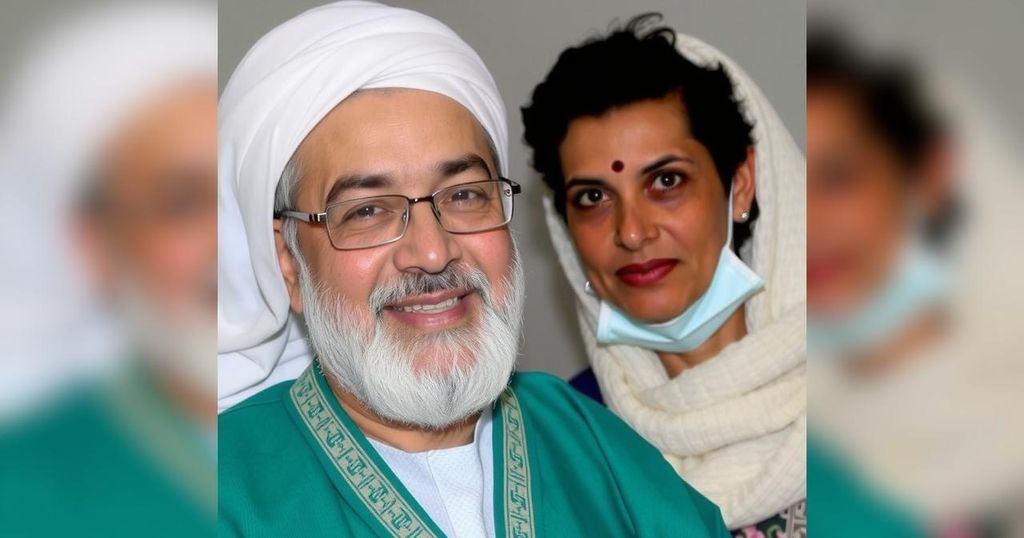Iran Offers Humanitarian Intervention in Case of Indian Nurse Sentenced to Death

Iran has offered humanitarian assistance to Nimisha Priya, an Indian nurse sentenced to death in Yemen for the 2017 murder of her employer amid abusive circumstances. This development illustrates the intricate interplay of humanitarian concerns within the broader context of Iran-India diplomatic relations. As both nations engage in discussions, the hope for a resolution grows amid the urgency of the situation.
In a significant diplomatic move, Iran has offered to extend humanitarian assistance in the case of Nimisha Priya, an Indian nurse sentenced to death in Yemen. Nimisha, who previously operated a clinic in Sana’a, was convicted for the fatal overdose of her former Yemeni employer following years of reported abuse. Iran’s involvement underscores the intricate dynamics of international relations and humanitarian obligations within a convoluted geopolitical landscape.
Nimisha Priya, a nurse from Kerala, faced capital punishment by Houthi officials for allegedly murdering Talal Abdo Mahdi in 2017. This incident unfolded against a backdrop of an abusive relationship, wherein Priya accused Mahdi of harassment and exploitation, culminating in her desperate attempt to escape his control. Despite her claims of self-defense, she was subsequently sentenced to death, igniting international concern.
Iran’s unexpected offer of assistance is indicative of its humanitarian stance amidst prevailing geopolitical tensions. “We will take up the issue of this nurse, we will do whatever we can,” declared a senior Iranian official, reinforcing the commitment to intervene on humanitarian grounds. This gesture not only aims to assist Priya but also illustrates Iran’s attempt to extend its diplomatic reach in a region where it maintains significant influence.
Meanwhile, India’s Ministry of External Affairs has expressed awareness of the situation and is committed to supporting Nimisha Priya’s case. MEA spokesperson Randhir Jaiswal stated, “We are extending all possible help in the matter,” while emphasizing the family’s pursuit of legal avenues. Advocacy groups are also demanding negotiations with Yemeni officials to halt the impending execution.
The broader context of Iran-India relations plays a crucial role in this scenario, as both nations have enjoyed deep-seated diplomatic ties characterized by cultural and economic interactions. Recent developments, including the visit of Dr. Takht Ravanchi, Iran’s Deputy Foreign Minister, to India for critical discussions, further enhance the possibility of dialogue on issues encompassing humanitarian assistance.
As the global community watches closely, the synchronization of efforts between Iran and India becomes essential in safeguarding Nimisha Priya’s life. Iran’s humanitarian outreach appears to add an intricate layer to diplomatic relations, highlighting the potential of leveraging international alliances for humanitarian causes. The situation emphasizes the importance of focusing on humane solutions amidst ongoing regional complexities.
The case of Nimisha Priya is emblematic of the personal and complex nature of international legal systems, particularly in regions experiencing conflict. With a past marked by abuse and manipulation, Priya’s actions stemmed from desperation, leading to her conviction and subsequent death sentence by Houthi authorities. The involvement of external nations, such as Iran and India, not only showcases their diplomatic ties but also their commitment to addressing humanitarian concerns arising from such dire situations.
Iran’s humanitarian offer to assist in Nimisha Priya’s case highlights the potential for collaboration between Iran and India in addressing pressing humanitarian issues. As both nations navigate the complexities of their diplomatic relationship, focused efforts from India’s Ministry of External Affairs and the Iranian government are pivotal in ensuring that justice and compassion prevail in this tragic circumstance. The unfolding situation underscores the broader implications of international diplomacy on individual lives caught in the crossfire of geopolitical tensions.
Original Source: www.financialexpress.com








